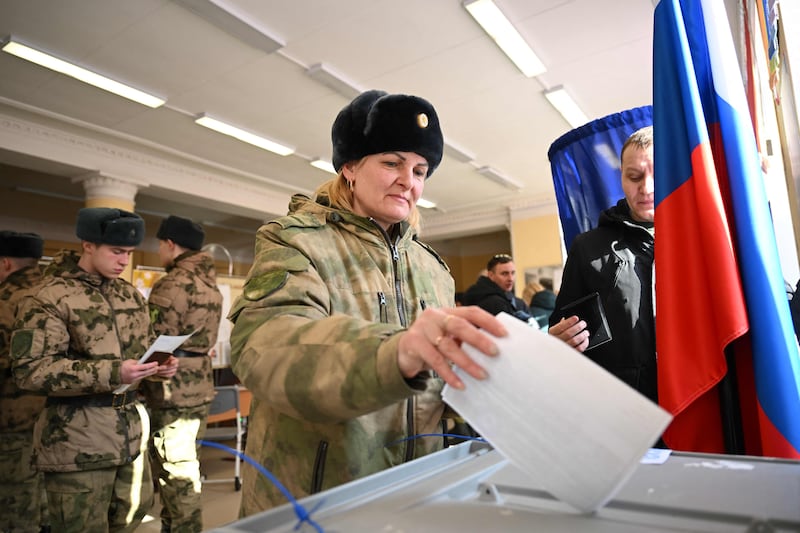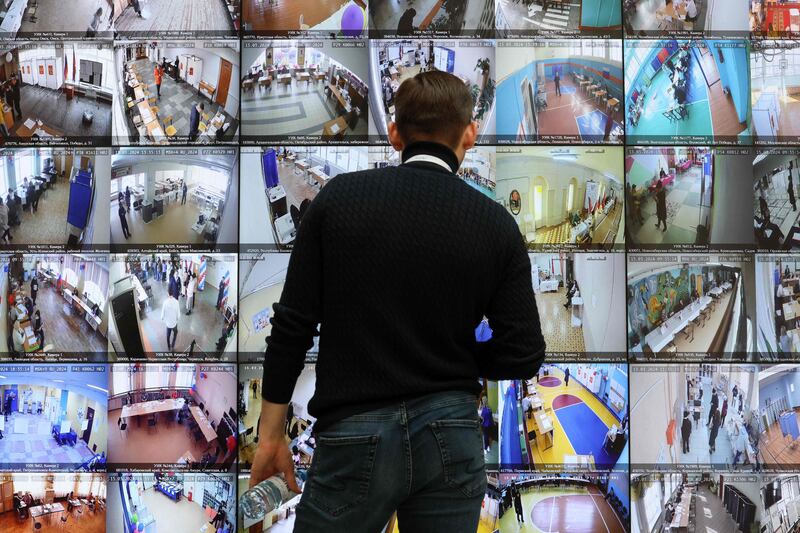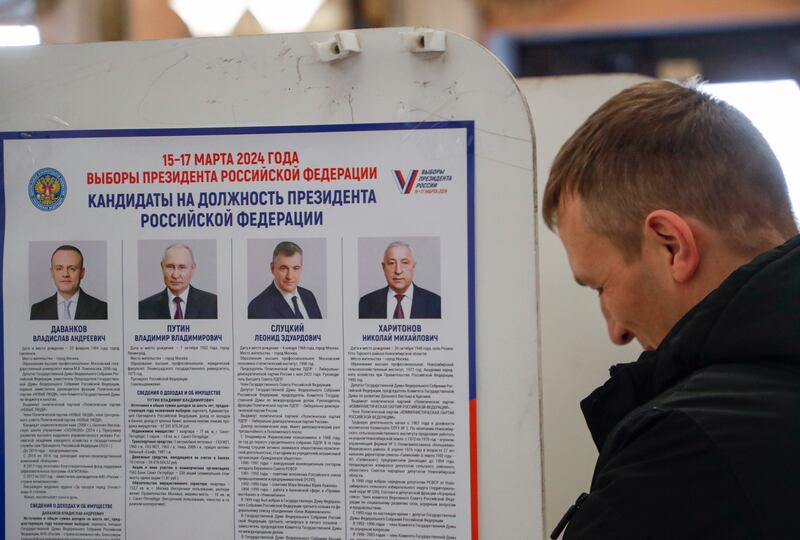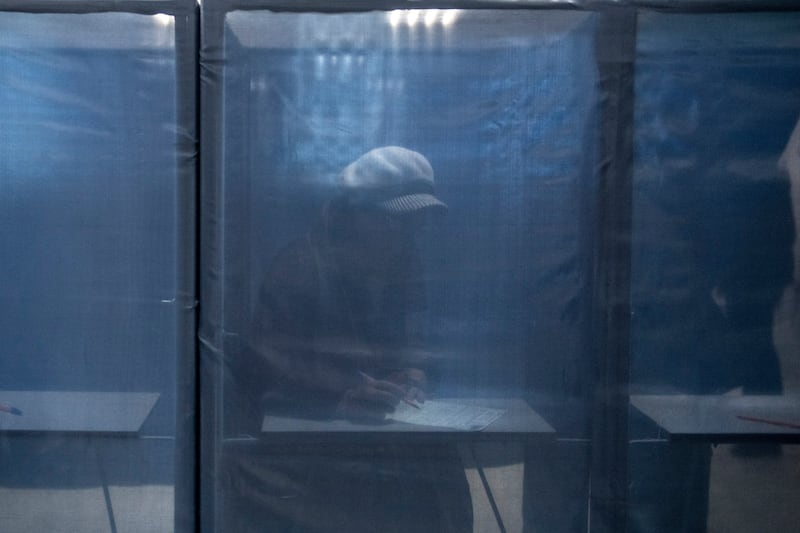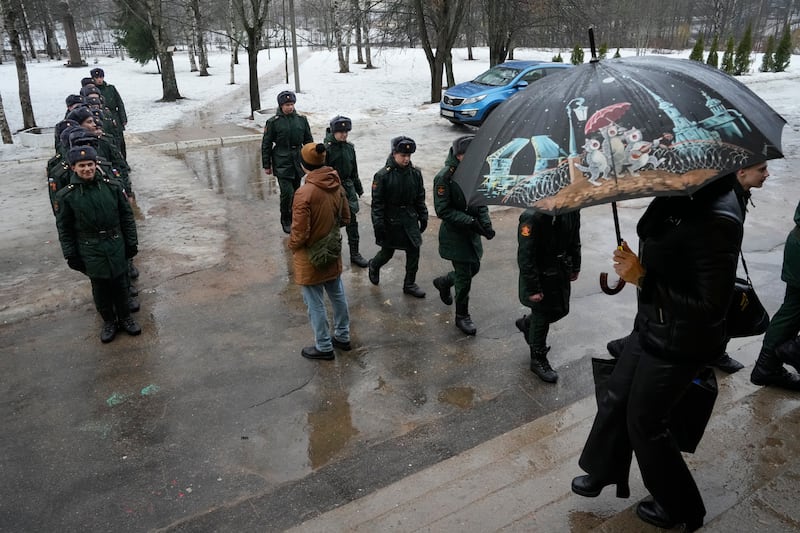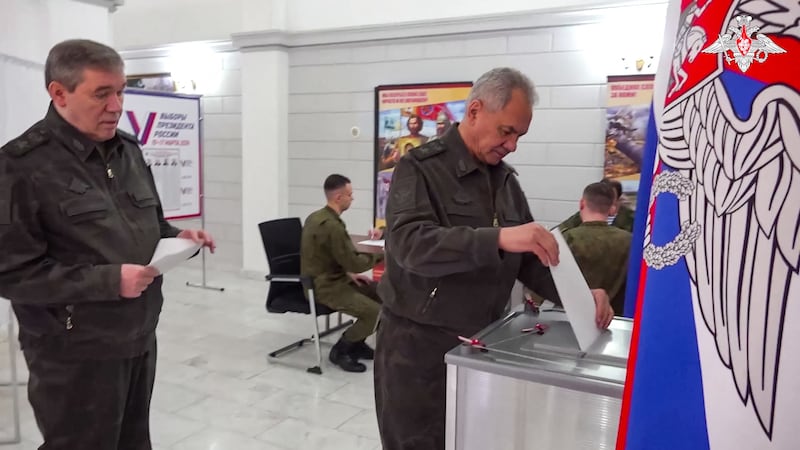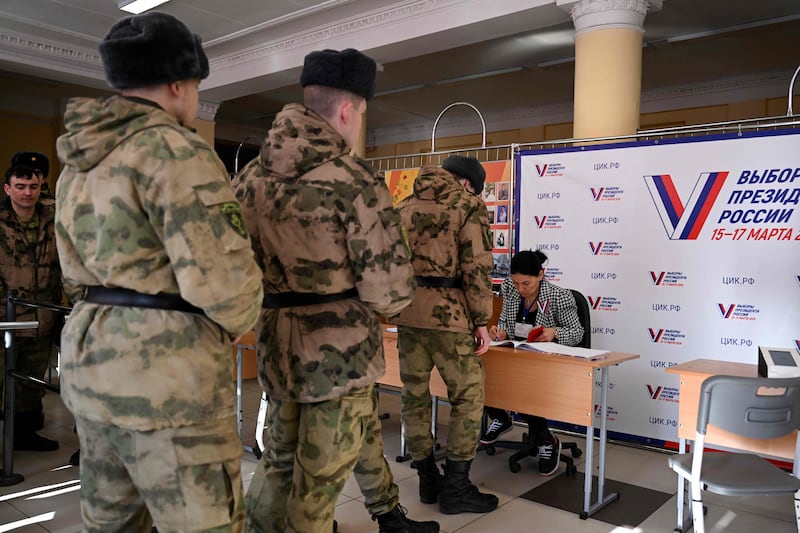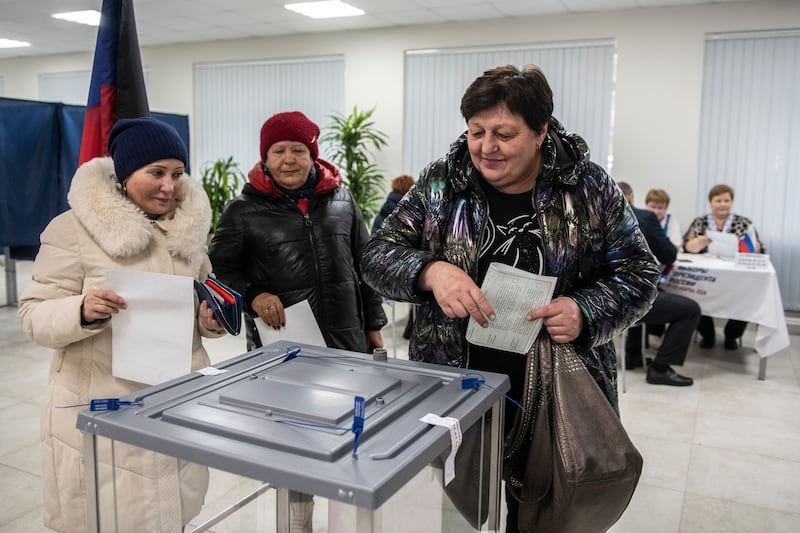Russians headed to the polls on Friday in an election expected to extend Vladimir Putin's rule by another term.
The three-day presidential election takes place a few weeks after the death of his fiercest critic, opposition leader, Alexei Navalny, in an Arctic Circle jail, and amid a ruthless clampdown that has crippled independent media and prominent rights groups.
Voters are casting their ballots from Friday through to Sunday at polling stations across the country’s 11 time zones, as well as in illegally annexed regions of Ukraine – a move criticised by Ukraine and the West.
The election comes as Russia enters the third year of its war against its neighbour, where it currently has the advantage on the battlefield, making small, slow gains.
But Ukraine has managed to make Moscow look vulnerable behind the front line. Long-range drone attacks have struck deep inside Russia, while high-tech drones have put its Black Sea fleet on the defensive.
The war has helped to shore up support for Mr Putin, allowing him to tighten his grip on power and boosting his popularity with Russians, according to polls and interviews with senior Russian sources.
The election holds little suspense since Mr Putin, 71, is running for his fifth term virtually unchallenged.
His remaining political opponents are either in jail or in exile abroad. The three other candidates on the ballot are low-profile politicians from token opposition parties that toe the Kremlin’s line.
Observers have little to no expectation that the election will be free and fair. Beyond the fact that voters have been presented with little choice, the possibilities for independent monitoring are very limited.
There have, however, been a number of incidents of vandalism at polling stations, with authorities detaining at least eight people on the first day of voting, officials said, without clarifying if these were protests against Mr Putin.
In Moscow, a video published by the independent Sota news outlet showed an elderly woman setting a voting booth alight, filling a polling station with smoke before she was detained by police.
Another video from the capital showed a woman pouring dye into a ballot box, while in the remote Siberian region of Khanty-Mansi, a woman was detained for trying to burn a ballot box with a Molotov cocktail, voting officials said.
Four others in the Russian regions of Voronezh, Karachay-Cherkessia and Rostov were also arrested for pouring dye into ballot boxes, officials said.
Only registered candidates or state-backed advisory bodies can assign observers to polling stations, decreasing the likelihood of independent watchdogs. With balloting over three days in about 100,000 polling stations in the country, any true monitoring is difficult anyway.
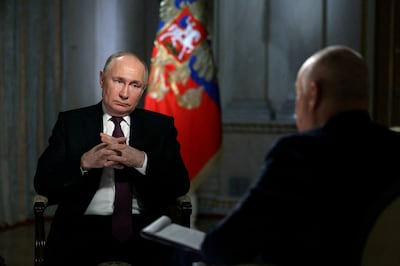
The Kremlin banned two politicians from the ballot who sought to run on an anti-war agenda and attracted genuine – albeit not overwhelming – support, thus depriving the voters of any choice on the “main issue of Russia’s political agenda”, said political analyst Abbas Gallyamov, who used to work as Mr Putin’s speech writer.
Russia’s scattered opposition has urged those unhappy with Mr Putin or the war to show up at the polls at noon on Sunday, the final day of voting, in protest.
The strategy was endorsed by Mr Navalny not long before his death, which sparked protests that have led to hundreds of arrests.
“We need to use election day to show that we exist and there are many of us, we are actual, living, real people and we are against Putin,” his widow Yulia Navalnaya said. “What to do next is up to you. You can vote for any candidate except Putin. You could ruin your ballot.”
How well this strategy will work remains unclear.
Golos, Russia’s renowned independent election observer group, said in a report this week that authorities were “doing everything so that the people don’t notice the very fact of the election happening”.
The watchdog described the campaign ahead of the vote as “practically unnoticeable” and “the most vapid” since 2000, when Golos was founded and started monitoring elections in Russia.
Mr Putin’s campaigning was cloaked in presidential activities, and other candidates were “demonstrably passive”, the report said.
State media dedicated less airtime to the election than in 2018, when Mr Putin was last elected, according to Golos.
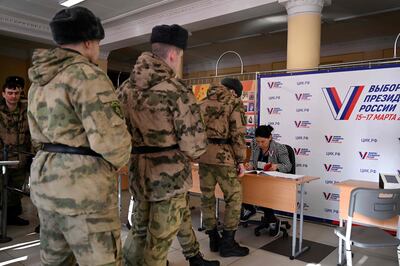
Instead of promoting the vote to ensure a desired turnout, authorities appear to be banking on piling pressure on voters they can control – for instance, Russians who work in state-run companies or institutions – to show up at the polls, the group said.
The watchdog itself has also been swept up in the clampdown. Its co-chairman, Grigory Melkonyants, is in jail awaiting trial on charges widely seen as an attempt to mount pressure on the group ahead of the election.
“The current elections will not be able to reflect the real mood of the people,” Golos said in the report. “The distance between citizens and decision-making about the fate of the country has become greater than ever.”
The Kremlin's main concern is ensuring a high turnout. Some managers at state companies have ordered employees to vote – and submit photographs of their ballot papers, six sources told Reuters. Even cash machines remind Russians to vote.
